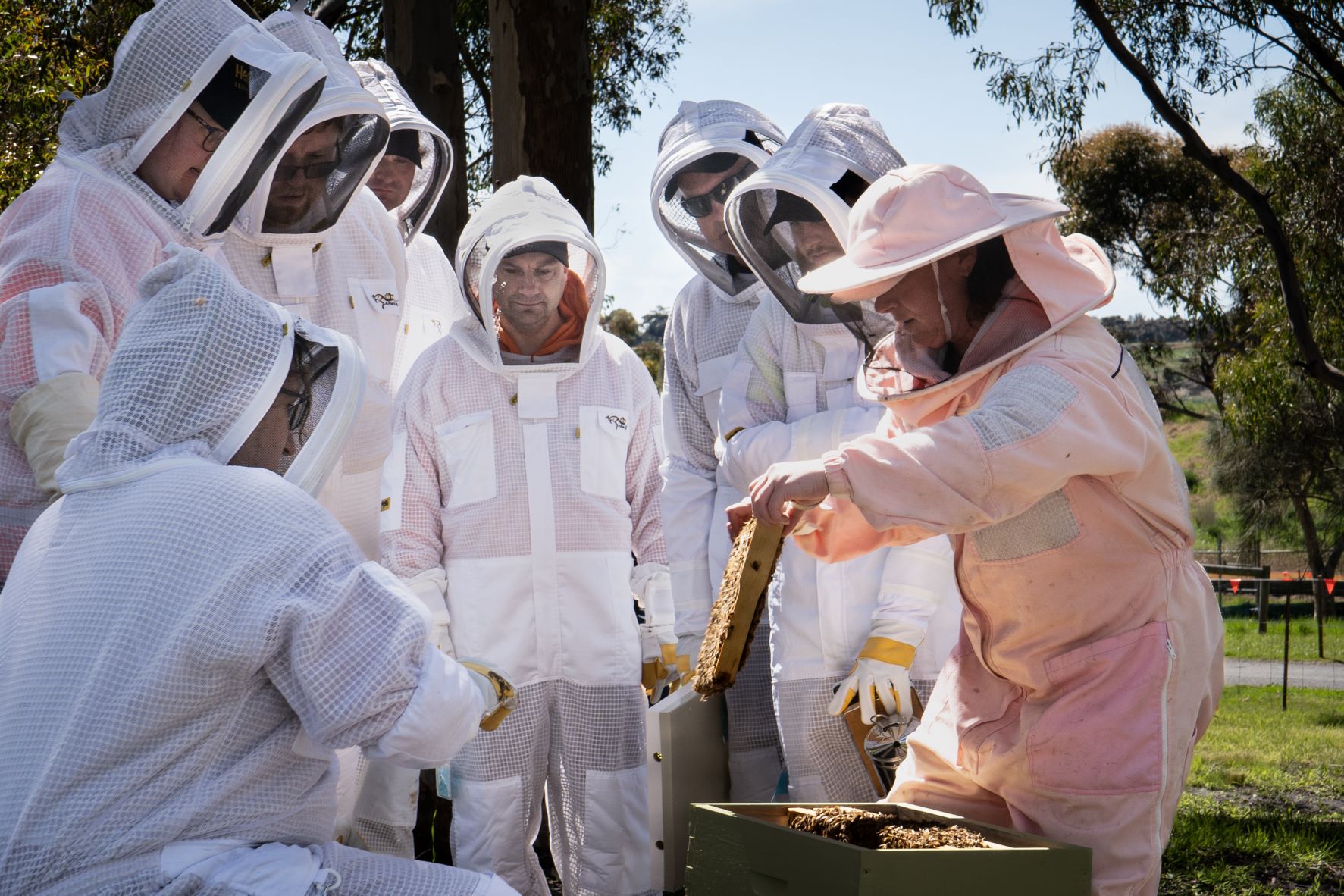Alarmed at the plight of bees under threat from disease and habitat loss, DO Pathways, the supported employment branch of Distinctive Options, has created a new diverse-ability employment enterprise, DO Honey.
DO Honey is a Sunbury-based beekeeping and honey production business that started in July 2022 as a key part of the DO Food Project.
With a focus on nutrition, sustainability and community, the DO Food Project provides opportunities for people with diverse-abilities to develop healthier, happier lives through food education, production and supply.
Nutritious, delicious honey will be the DOFP’s first foray into food production.
Ten supported employees have been trained in apiculture by Rebecca Light from Bee Responsible.
Bees were purchased from Chris at The Apiarist Woodend, and six hives have been placed in a semi–rural location provided by Greater Western Water.
DO business development manager, Paul Pearman, said there was great excitement as the bees arrived and the team settled them into their new environment.
“Everyone is now used to wearing the bee suits provided by Kyneton-based beekeeping supplier Waggle and Forage,” Mr Pearman said.
“The first honey harvest is expected in autumn 2023. Within five years, the number of hives will have increased to 50, with annual honey production amassing to an impressive 1500 litres.
“Caring for bees also means caring for the environment and DO Honey employees will be maintaining the hive site through careful planting and maintenance of selected plants.
“Some will be locally sourced indigenous plants, others will be chosen for their ability to support the honey bee population.
“A fast-growing photinia hedge will help guide the bees to safely find their way to and from the hive.”
Mr Pearman said the resulting healthy honey products would feature on the menu of DO Food Project cafés, including one opening in mid-November at Macedon Ranges Health, Neal Street, Gisborne.
“The DOFP cafés will be friendly, modern, inclusive gathering spaces, with a focus on tasty, sustainable, plant-based offerings, informed by nutritionist recommendations,” he said.
“Future honey–based products will include candles, soaps and skincare. Importantly, supported employees will gain the skills and confidence to share their knowledge with others, through beekeeping seminars and presentations at food events, markets and online.
“They will complete the circle by providing training for future supported employees to continue building connections with the environment and community.”








